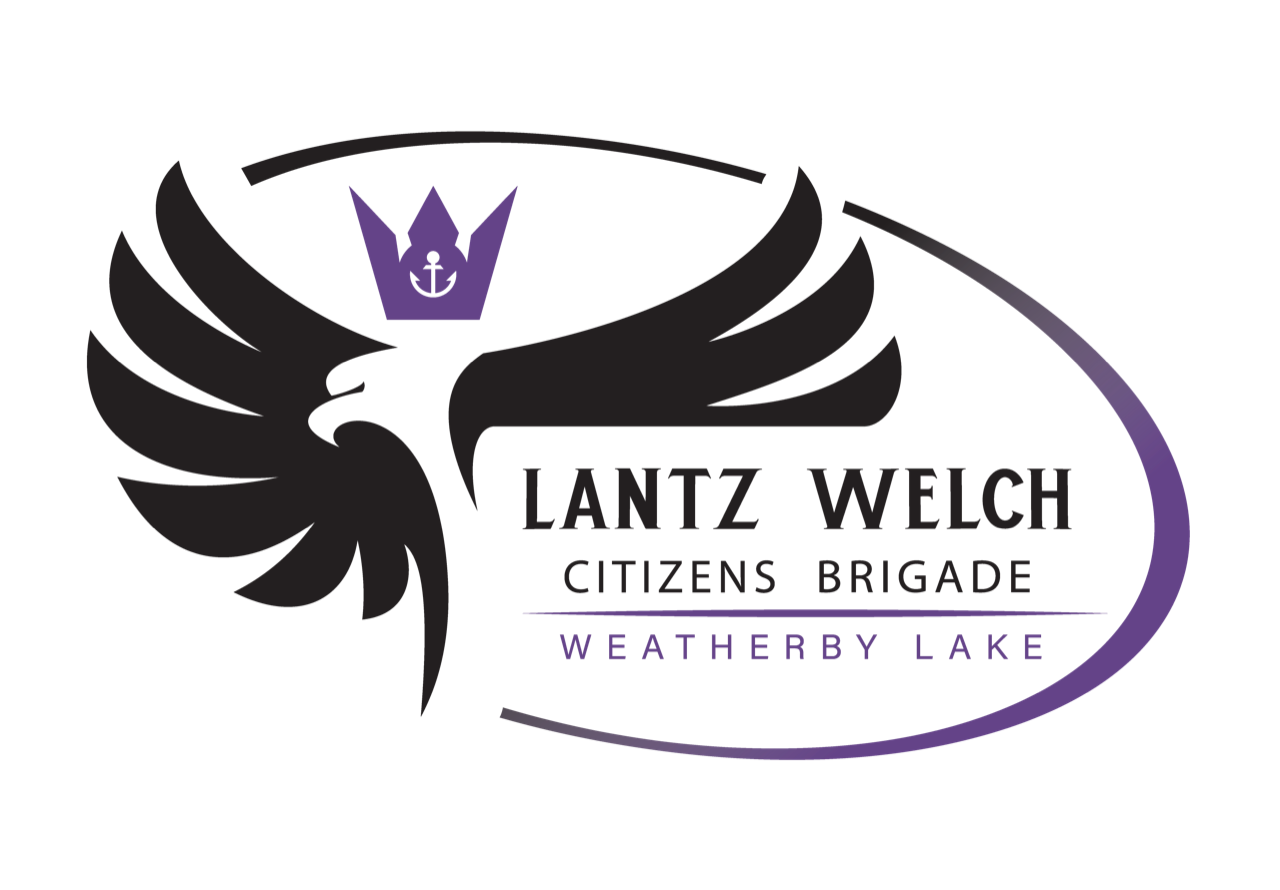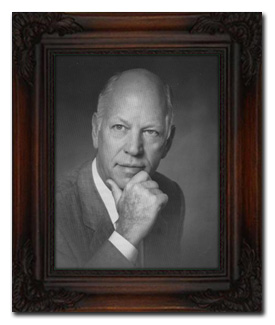Liberty & Justice

The story of the Kansas City Metropolitan Bar Association
Whether he’s tackling the Presidency of the Kansas City Metropolitan Bar association [KCMBA], representing a personal injury victim, or pursuing his philanthropic interests, Lantz Welch’s modus operandi is the same: Preparation and Perfectionism.
Welch is justifiably proud of the time and effort he has devoted to the legal profession and the results he has achieved. A watershed year in Welch’s era of service to the bar came in 1977 when he became president of the KCMBA. During his tenure he instigated and promoted passage of a new constitution and bylaws that achieved, among other things, an open election process for future bar officers.
Upon taking office as bar president, Welch discovered the association was nearly bankrupt. He personally signed a note to keep the association afloat and then, in the face of stiff opposition, pushed through a substantial increase in bar dues. Because of the quality of continuing legal education and social programs during Welch’s tenure as president, the association was in the black, and the bank debt was retired by the end of his term in office.
Welch had another surprise when he became bar association president. He learned the organization had never filed a tax return and therefore was operating illegally. Welch was able to convince the executive committee to advise the Internal Revenue Service of the situation. The IRS assessed no penalty, and the KCMBA received section 501 [c] 3 status, permitting creation of the Kansas City Bar Foundation, which in turn gave birth to the bar association’s present Bar Center.
During his presidency Welch began an effort to convince Missouri United States Senators that they needed input from the KCMBA to aid in the selection of federal judges. The endeavor was a lengthy one, but in 1981 the merit selection process for the federal judiciary in Missouri’s Western District was born.
He is a past president of the Law Foundation of the School of Law of the University of Missouri-Kansas City and a past president of the Kansas City Bar Foundation.
Preparation and perfectionism likewise form the core of Welch’s law practice. Welch has been described by a colleague as, “One of Kansas City’s hardest-working attorneys, one who absorbs every detail of a case and engages in methodical planning of its’ prosecution.” His reputation is such that the majority of his clients are referred to him by other lawyers.
In 1989, Trial Lawyers for Public Justice, founded by Ralph Nader, nominated Welch for the organization’s annual award given to the private practice attorney who most exemplified the organization’s ideal by winning a “cutting edge” case-one that had, and will have, significant impact for the public good.
The “cutting edge” case was Welch’s representation of 31 residents of Sedalia, Missouri, who suffered personal injury and property damage as a result of toxic spills and emissions from the Alcolac, Inc., chemical plant in Sedalia. The lawsuit was a 10-year endeavor during which Welch expended more than one million dollars in case expenses on behalf of his clients. The four-and a-half month trial ended with jury verdicts totaling more than $49 million. Of Welch’s work on behalf of the Sedalia residents, the Trial Lawyers for Public Justice said, “For doing so much to preserve our air, land, and water, he is truly deserving of honor as one of the very best trial lawyers of the year.”
Welch has been on the cutting edge with other cases as well. He represented the plaintiff in a case in which the Missouri Supreme Court first permitted an award of punitive damages against a health care provider, and he represented the plaintiff in the case in which the state’s high court abolished the practice of remittitur.
Welch has been listed continuously in The Best Lawyers in America since the book’s inception in 1983. He has been selected by his peers as a member of the Inner Circle of Advocates and as a fellow in the International Academy of Trial Lawyers.
Lantz Welch’s philanthropic endeavors also receive his trademark investment of time and effort. The Lantz Welch Charitable Foundation contributed nearly $100,000 to establish the Lantz Welch Conference Room and the Lantz Welch Educational Center at the KCMBA headquarters.
But the Lantz Welch Charitable Foundation does not limit its financial assistance to the legal profession. The foundation donates up to $250,000 a year to a variety of programs, including those that help homeless and troubled youth. Welch says most of the money from his foundation goes to “disenfranchised people” who have difficulty making it on their own. He describes the recipients as “the kind of people I represent in lawsuits.”
The story of the Kansas City Metropolitan Bar Association
Whether he’s tackling the Presidency of the Kansas City Metropolitan Bar association [KCMBA], representing a personal injury victim, or pursuing his philanthropic interests, Lantz Welch’s modus operandi is the same: Preparation and Perfectionism.
Welch is justifiably proud of the time and effort he has devoted to the legal profession and the results he has achieved. A watershed year in Welch’s era of service to the bar came in 1977 when he became president of the KCMBA. During his tenure he instigated and promoted passage of a new constitution and bylaws that achieved, among other things, an open election process for future bar officers.
Upon taking office as bar president, Welch discovered the association was nearly bankrupt. He personally signed a note to keep the association afloat and then, in the face of stiff opposition, pushed through a substantial increase in bar dues. Because of the quality of continuing legal education and social programs during Welch’s tenure as president, the association was in the black, and the bank debt was retired by the end of his term in office.
Welch had another surprise when he became bar association president. He learned the organization had never filed a tax return and therefore was operating illegally. Welch was able to convince the executive committee to advise the Internal Revenue Service of the situation. The IRS assessed no penalty, and the KCMBA received section 501 [c] 3 status, permitting creation of the Kansas City Bar Foundation, which in turn gave birth to the bar association’s present Bar Center.
During his presidency Welch began an effort to convince Missouri United States Senators that they needed input from the KCMBA to aid in the selection of federal judges. The endeavor was a lengthy one, but in 1981 the merit selection process for the federal judiciary in Missouri’s Western District was born.
He is a past president of the Law Foundation of the School of Law of the University of Missouri-Kansas City and a past president of the Kansas City Bar Foundation.
Preparation and perfectionism likewise form the core of Welch’s law practice. Welch has been described by a colleague as, “One of Kansas City’s hardest-working attorneys, one who absorbs every detail of a case and engages in methodical planning of its’ prosecution.” His reputation is such that the majority of his clients are referred to him by other lawyers.
In 1989, Trial Lawyers for Public Justice, founded by Ralph Nader, nominated Welch for the organization’s annual award given to the private practice attorney who most exemplified the organization’s ideal by winning a “cutting edge” case-one that had, and will have, significant impact for the public good.
The “cutting edge” case was Welch’s representation of 31 residents of Sedalia, Missouri, who suffered personal injury and property damage as a result of toxic spills and emissions from the Alcolac, Inc., chemical plant in Sedalia. The lawsuit was a 10-year endeavor during which Welch expended more than one million dollars in case expenses on behalf of his clients. The four-and a-half month trial ended with jury verdicts totaling more than $49 million. Of Welch’s work on behalf of the Sedalia residents, the Trial Lawyers for Public Justice said, “For doing so much to preserve our air, land, and water, he is truly deserving of honor as one of the very best trial lawyers of the year.”
Welch has been on the cutting edge with other cases as well. He represented the plaintiff in a case in which the Missouri Supreme Court first permitted an award of punitive damages against a health care provider, and he represented the plaintiff in the case in which the state’s high court abolished the practice of remittitur.
Welch has been listed continuously in The Best Lawyers in America since the book’s inception in 1983. He has been selected by his peers as a member of the Inner Circle of Advocates and as a fellow in the International Academy of Trial Lawyers.
Lantz Welch’s philanthropic endeavors also receive his trademark investment of time and effort. The Lantz Welch Charitable Foundation contributed nearly $100,000 to establish the Lantz Welch Conference Room and the Lantz Welch Educational Center at the KCMBA headquarters.
But the Lantz Welch Charitable Foundation does not limit its financial assistance to the legal profession. The foundation donates up to $250,000 a year to a variety of programs, including those that help homeless and troubled youth. Welch says most of the money from his foundation goes to “disenfranchised people” who have difficulty making it on their own. He describes the recipients as “the kind of people I represent in lawsuits.”


